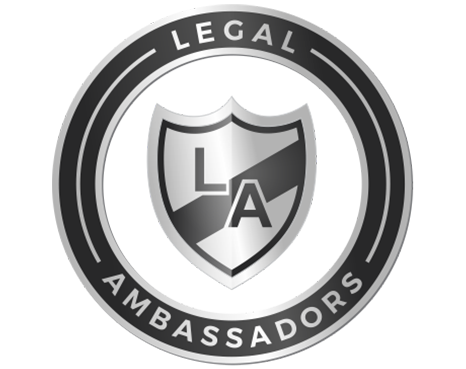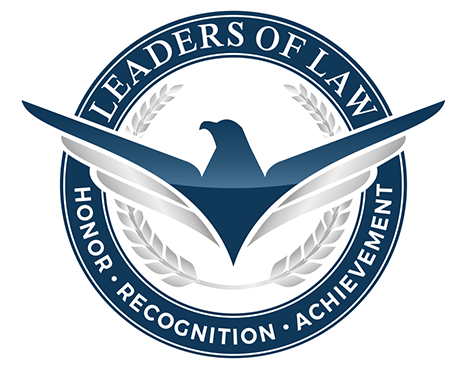Family and Medical Leave Act Attorneys Beverly Hills & Rancho Cucamonga, CA

To say that work-life balance is elusive for American workers is an understatement. Neither federal law nor California law requires employers to provide paid medical leave or paid time off for family care giving needs. If your employment contract guarantees either of these, this is a reason to celebrate. Even though federal and state laws do not guarantee paid medical leave or family leave for California workers, the law does require employers to preserve the employment status of employees when they take an unpaid leave of absence for health reasons or to care for a sick family member or a new baby.
The federal law that guarantees this right is called the Family and Medical Leave Act (FMLA), and the California state law that covers similar provisions is called the California Family Rights Act (CFRA). FMLA and CFRA are more alike than different, but CFRA offers more protections, especially for employees of small businesses, pregnant women, and mothers of infants. The Beverly Hills Family and Medical Leave (FMLA) lawyers at Mehtani Law Offices, P.C. can help you take the leave of absence from work that you need in order to attend to your health or your family.
What is Medical Leave?
Medical leave is when you must miss work for more than a few days because of a serious health condition. Medical privacy laws protect you from having to provide any details to your employer about your diagnosis or your treatment. Disability accommodations are not the same thing as medical leave, but sometimes employees who have returned to work after using their medical leave pursuant to FMLA or CFRA require accommodations. Taking FMLA or CFRA leave is a protected activity, and so is requesting disability accommodations.
According to the law, disability accommodations must be reasonable, which means that they should enable the employee to perform his or her job duties and should not place an excessive financial burden on the employer. Therefore, what constitutes a reasonable accommodation varies from one context to another.
For example, a large company may be able to buy the accessibility features that the employee needs for their work computer, while adhering to a strict policy where employees can only use employer-provided devices for work-related communications, whereas a small business may simply allow the employee to bring their laptop computer, which already has the needed features, to work.
When you notify your employer about your need for an accommodation, it is your employer’s responsibility to begin the negotiation process by offering an accommodation that the employer considers reasonable and affordable. If you have just received a diagnosis of a chronic illness or found out that you will require a long course of medical treatment, it is a good idea to consult Mehtani Law Offices, P.C. about requesting the time off from work that you will need and the accommodations you will require when you return.
What is Family Leave?
FMLA and CFRA give employees the right to take an unpaid leave of absence from work to act as a caregiver to a family member with a serious health condition. Both laws consider the following relatives of the employee as qualifying family members:
Additionally, you can use FMLA leave or CFRA leave to bond with your newborn baby or newly adopted or newly fostered child.
Family And Medical Leave Act (FMLA)
The primary federal law that affords employees the right to take protected leave is the Family and Medical Leave Act of 1993 (as amended) (FMLA), codified in Chapter 29 of the United States Constitution starting with Section 2601. The FMLA allows eligible employees to take up to 12 weeks of leave to treat their own “serious medical condition” or a “serious medical condition” of an immediate family member. The leave time can be taken all at once or on an intermittent basis, and can also be taken in as small increments as hourly.
In order to be eligible for FMLA, all of the following criteria must be met:
–Your employer must have at least 50 employees; –You must work at a location of your employer that has at least 50 employees working within a 75 mile radius of your work location; –You must have worked at the employer for at least 1 year; –You must have worked for the employer at least 1250 hours in the immediately prior 12 months; –Your need for time off must be due to a “serious medical condition” of you or your immediate family member.
FMLA is calculated on either a calendar or rolling basis, at the election of the employer. If an employee is eligible for FMLA, then the employer generally has to grant the employee the requested leave time, notwithstanding any hardship on the business.
California Family Rights Act (CFRA)
The California Family Rights Act (“CFRA”) is substantially similar to the FMLA but it is codified under California law as part of the Fair Employment and Housing Act (the “FEHA”). Most of the same rules that apply to FMLA apply to CFRA. In many cases, the attorneys at Mehtani Law Offices, P.C. will file claims for violations of both FMLA and CFRA, because typically the two laws overlap.
However, there are differences and you should consult an attorney to learn more about them. For example, although both the FMLA and the CFRA include same-sex spouses in the definition of a family member, only the CFRA allows for leave for a registered domestic partner. Also, while a disabling condition related to pregnancy is considered a serious medical condition under the FMLA, pregnancy is not covered or considered a serious health condition under the CFRA. CFRA leave can be used by an employee only following the birth of a child for bonding. In circumstances where a leave qualifies for both the FMLA and CFRA leave, the leaves will run concurrently.
California Employees Get Something Even Better Than FMLA
FMLA and CFRA are almost identical, except for a few key differences. Both laws guarantee you the right to an unpaid leave of absence from work for up to 12 weeks for medical reasons or family caregiving responsibilities, and they both require your employer to allow you to return to your job at the end of the leave period. Under both laws, you become eligible to take medical leave or family leave after you have worked for your employer for 12 months. FMLA leave and CFRA leave run concurrently, which means that when you take CFRA leave, you are also using your legally guaranteed FMLA leave.
CFRA grants the right to job-protected leave for some employees who are not covered under the federal FMLA. Specifically, FMLA requires employers to provide unpaid family and medical leave if the employer has at least 50 employees on the payroll, but CFRA imposes this requirement on all businesses that employ at least five employees. Therefore, if you work for a small business in California, your situation is less precarious than it is for small business employees in other states.
Furthermore, federal law does not address the situation of women who suffer pregnancy complications, requiring them to miss work both before and after the baby’s birth. California law does address this issue. In California, pregnant women cannot take CFRA leave for reasons related to their pregnancy; instead, they must take Pregnancy Disability Leave (PDL), which is also an unpaid leave but for which the maximum duration is four months. After the baby is born, PDL automatically ends, but the mother can then take CFRA leave until the baby is 12 weeks old.
What Happens if an Employer Retaliates Against You for Exercising Your Rights Under FMLA or CFRA?
It is against the law for employers to retaliate against employees for engaging in protected activities such as taking FMLA leave. In many cases, complaints about retaliation related to FMLA leave overlap with discrimination claims. If you took the FMLA leave because of your own illness and your employer retaliated against you, this is discrimination based on disability. If your employer retaliated against you because of a leave of absence during which you provided care for a family member, this could be discrimination based on family status. The employment lawyers at Mehtani Law Offices, P.C. can help you navigate the various laws related to your claim.
Contact Mehtani Law Offices, P.C. About FMLA Leave
Mehtani Law Offices, P.C. is dedicated to helping workers in California care for their health and their families without losing the jobs that provide their livelihood. Contact Mehtani Law Offices, P.C. in Beverly Hills, California, to schedule a consultation.
 310-776-3590
310-776-3590





